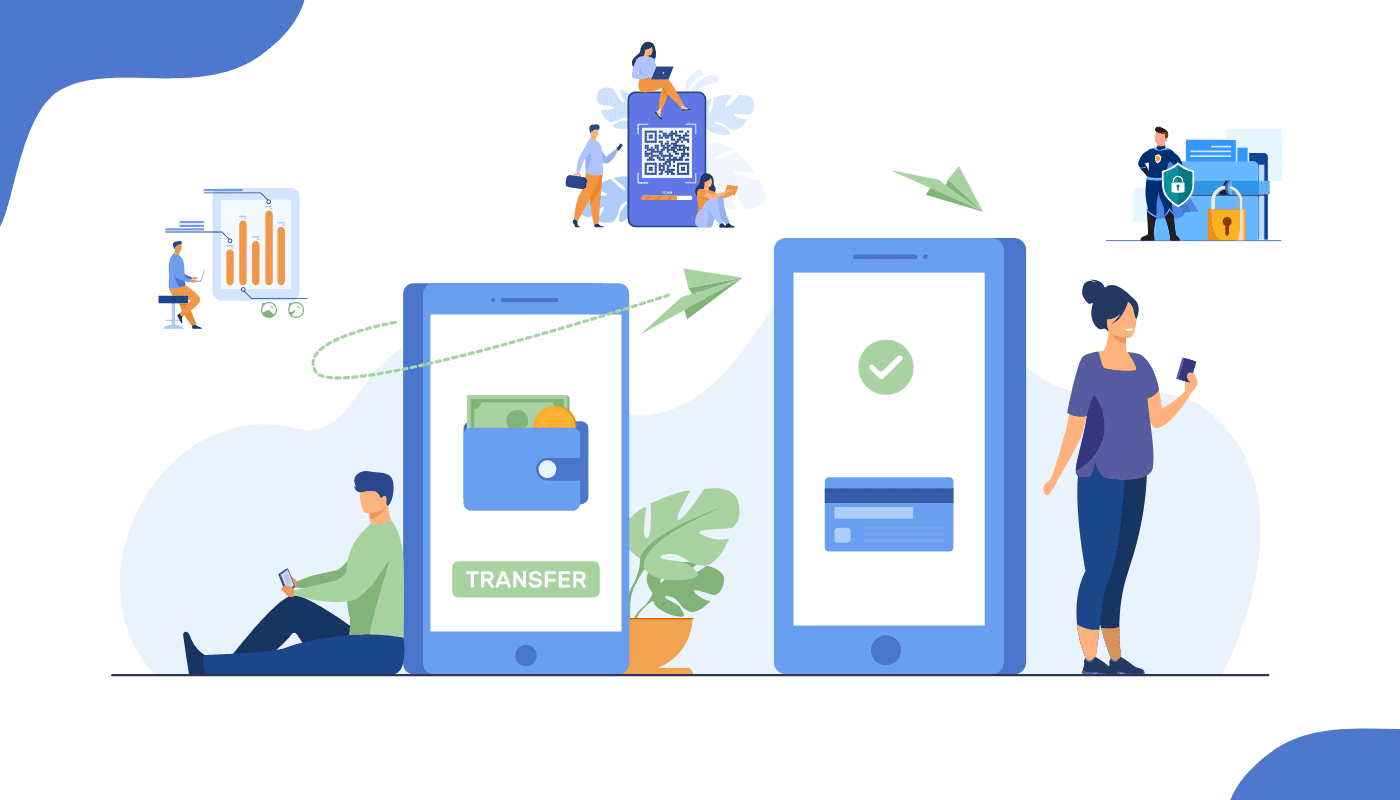
Confused about whether to get an enterprise app developed for your business? We are sharing a detailed guide on enterprise applications to help enterprises to decide if it will be worth their efforts and investment or not.
With no further ado, let us get started.
What is Enterprise App Development?
Enterprise app development is creating and deploying portable, scalable, and trustworthy mobile apps developed. If you are not well-versed in app development, we recommend hiring experienced mobile app development services. The major objective of getting such apps developed is to help large and medium-scale organizations engage with partners, consumers, and employees.
Enterprise apps help an organization in several ways:
- Align the divisions of a company towards common objectives.
- Enable the management to make decisions data-informed.
- Help keep company data updated across several systems.
- Enables reduction of hands-off expenses between the departments.
Trends Of Enterprise Development
Microservices
Microservices here means the style in which the architecture of an app is structured from a collection of several different services. Such services can get independently deployed, have their admin panels, or help build apps using different technologies.
Cloud-based services
Traditionally, many enterprise applications are hosted on company servers; the cloud-based apps are now slowly taking over the world of business by significantly reducing the upfront costs. The apps developed are all accessible for medium to small-scale enterprises.
Big Data
Big data is referred to as the huge volumes of data that is processed by businesses almost every day. Companies nowadays have several resources from where they can collect data, and hence, it becomes challenging for them to match, link, and analyze the accumulated information. Enterprise applications come to the rescue during such conditions since it helps speed up business processes and systemize a large amount of data available.
Artificial intelligence
Just as any other app, Machine, and Artificial Intelligence are responsible for taking enterprise applications up a notch, with the growth of enterprise data, large companies leverage the latest developments in machine learning and AI to offer business insights, enhance customer experience and stay competitive.
Types of Enterprise Mobile Applications
Based on the popularly used apps by different businesses, enterprise mobile applications are classified into three main categories.
Employee level
It is referred to as a corporate-level application used by internal employees for tasking and communication. The employee-level application can be regarded as a tool with minimalistic features to help project managers track the status of their project. Such apps ensure that the workflow is smooth, enable real-time performance updates, and keep the employees updated with the current activities.
Department level
Just as a large company operates, this app has different departments responsible for specific functions. That said, department apps are focused on the processes and requirements of a particular department. For instance, marketing, sales and finance.
Company-level
After the internal processes of an employee or the entire organization are optimized, company-level applications come into the picture. The major aim behind the development of such apps is to connect every business department to one corporate network. Such apps help the employees of an organization connect seamlessly and it helps maintain consistency, making communication a lot easier.
Why Build An Enterprise App?
Thinking about why I should get an enterprise app built? Let us discuss a few robust reasons behind it.
Stay Effective
With time as your business grows, it becomes tough for you to track every minute detail related to the daily operations. This further leads to delays, unexpected losses, late payments, etc. Enterprise apps help make business processes efficient that impact your business processes.
Maximize Revenue
Effective business operations enable an increase in the revenue of your business and it ensures a smooth workflow. Also, it helps you provide service to a large number of consumers at the same time.
Minimize Losses
When you get the flexibility of tracking all processes inside your organization, unnecessary spending gets reduced, which helps you see the results of all the efforts made.
Automate Business Processes
Enterprise application helps manage huge paperwork with greater ease, thereby reducing fuss. It helps automate marketing campaigns, data processing, and transaction control. That said, it helps business operators to stay calm and ensure that their goals are met.
Manage Payment Transactions
It is difficult to manage every business transaction carried on your website, which becomes extremely difficult when your business grows with each passing day. Enterprise apps help manage the transactions and the notifications and track deadlines. Different kinds of payment methods can be included as per an organization’s goals and specific needs.
Now that you are convinced to develop an enterprise app for your business let us go through some must-have features that you should integrate into your app.
Enterprise Apps Must-Have Features
Extensive Databases
Enterprise apps are corporate systems. Hence, such apps closely deal with data transfers and user data. To make it more simple, databases are nothing but a collection of tables that are believed to hold information related to goods, people, assets along with specific details. You should make sure that the database is consistent across all platforms with no downturns or lags.
Multiple User Roles
Enterprise apps are built for the employees of an organization so that they can obtain the advantages offered. However, not every information contained in the app should be open to all and this is where multiple user roles come into the picture. It helps create permissions for several different groups of roles and you can assign a certain role to each group to maintain and use only a specific part of information.
Third-Party App Integrations
When building an enterprise app, there is no way you can build an app without partnering with other third-party apps. To integrate some out-of-the-box features, third-party apps are critical. For instance, if looking to integrate a task management app JIRA is there, for real-time editing Google sheets and docs are there, etc. Instead of developing everything from scratch, take advantage of third-party apps to make your app efficient.
Real-Time Analytics
Enterprise apps are a place where hundreds and thousands of users interact, and this is incredibly true when employees of an organization are working from remote locations. To avoid all kinds of a slowdown in data processing, you need to ensure that the apps get updated in real-time.
Instant Messaging
One of the major goals of enterprise apps is to make sure that the people in your organization get enough space to interact with each other. Hence, integrating chat functionalities in your app would be an excellent idea since it enables smooth interactions among the employees. Furthermore, it helps record the historical changes made on the files.
The Bottom Line
Getting an enterprise app developed is a complicated one and hence you should hire expert mobile app development services. It involves several issues that need thorough considerations and only experienced professionals can help you find answers. For instance, security, unexpected events, and integration of third-party apps are a few factors that may hinder the strategy of enterprise app development. Invest to ensure your business stays competitive.
Author Bio:
Arjun Solanki is a Business Growth Strategist at a Leading Software Development Company USA. He has experience in developing and executing digital strategies for large global brands in a variety of business verticals. Apart from working on a long-lasting relationship with customers and boosting business revenue, he is also interested in sharing my knowledge on various technologies and their influence on businesses through effective blog posts and article writing.
Twitter Profile: https://twitter.com/arjunsolanki_s








